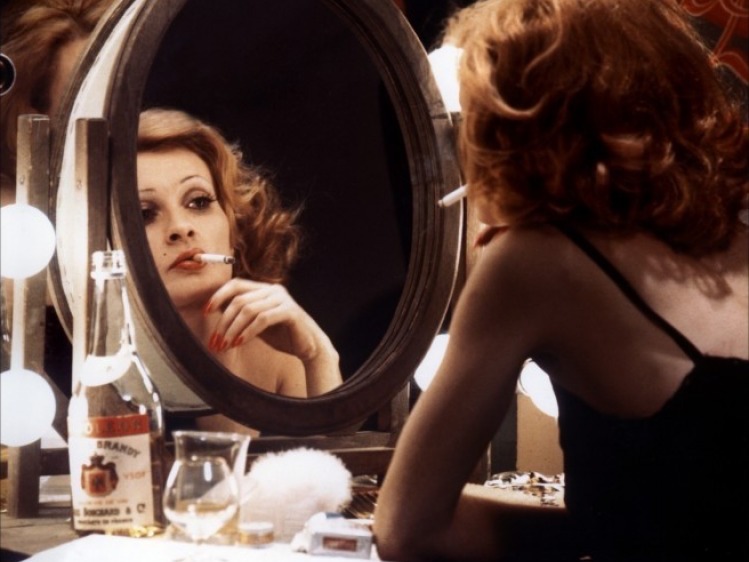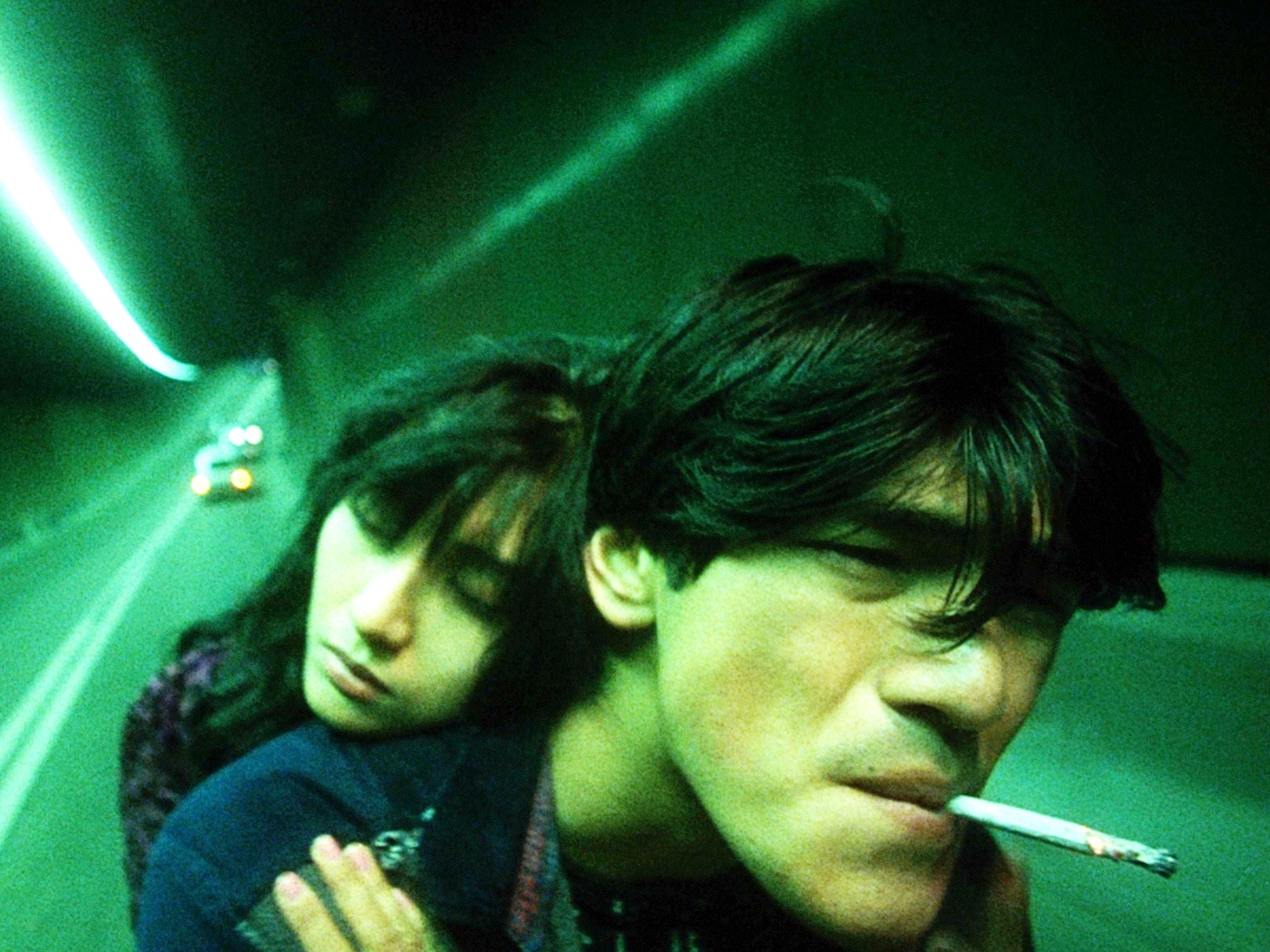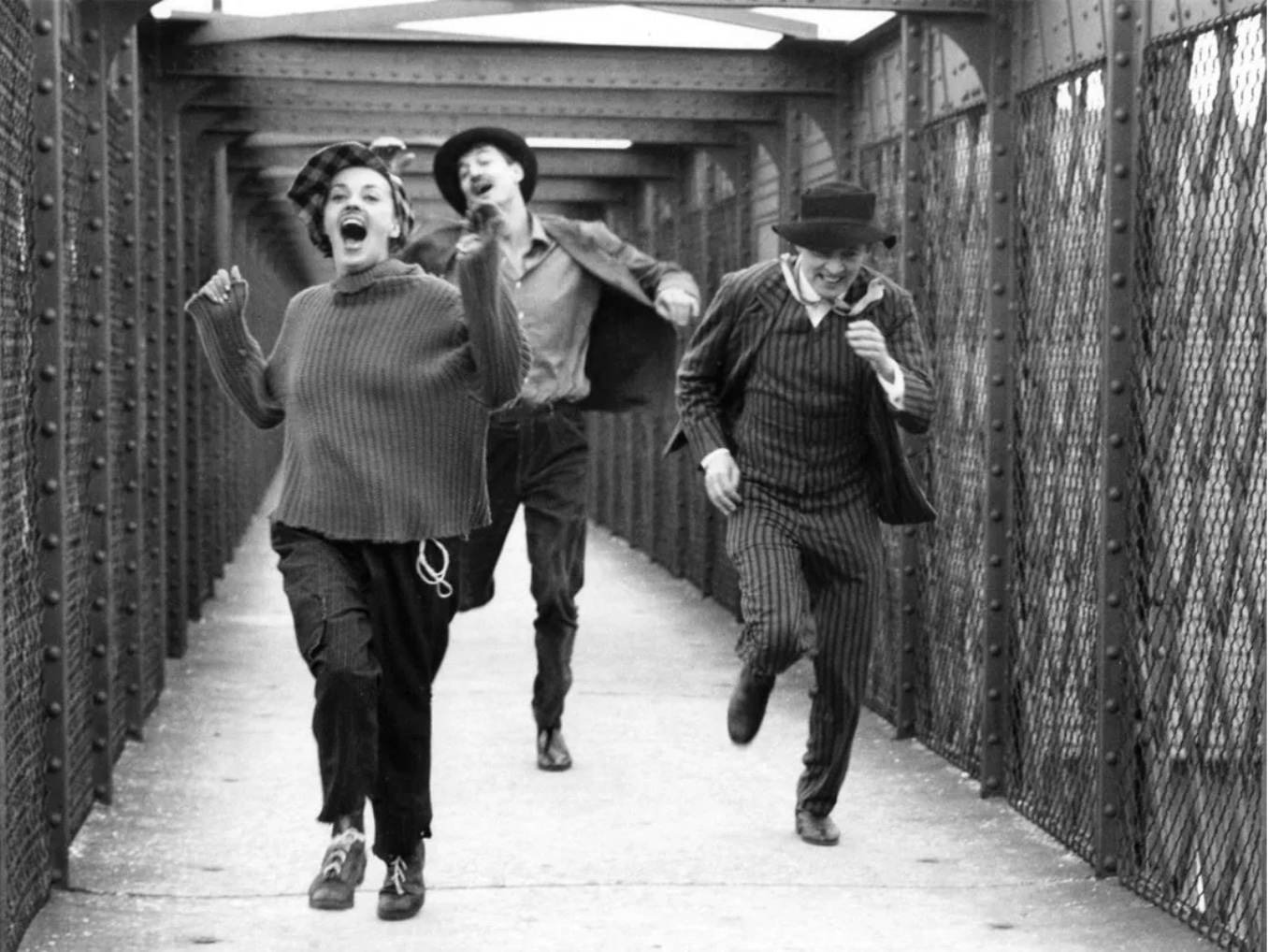Week 40/2024
With a quote from Raymond Bellour, who said that “narrative cinema is a machine for creating the couple,” Australian critic Adrian Martin opens his extensive review of Wong Kar-wai’s Fallen Angels – one of the films in this week’s selection – saying that “cinema is obsessed with love, with romance, and most especially with the couple.” This week’s films are all New Wave films, from different times and places, that subvert the traditional and classic portrayals of romance on screen.
In La Paloma (1974), Daniel Schmid abandons the use of a traditional script altogether, with the story merely serving as a trigger for “pure imagination”. Not a shred of emotion remains, only a willed and constant mise-en-scène of melodramatic feelings. As Schmid himself remarked about his film: “La Paloma is about love, understood as an absolute fiction. It is not that love occasionally makes a mistake; rather, it is by its very nature a mistake. What one thinks is a bond with another person is revealed to be a new dance of the lonely self. Love thus becomes a medium of self-expression.”
Like La Paloma, Wong Kar-wai’s Fallen Angels is also an “elegy to loneliness.” Tony Rayns even argues that “loneliness is ultimately the film’s centrifugal force.” Originally conceived as part of Kar-wai’s Chungking Express, the film delves deep into the nocturnal world of Hong Kong, following a string of detached and lonely underground figures. To cite Adrian Martin again: “Everyone in Fallen Angels is either too close or too far apart. Lovers never meet, but strangers suddenly grasp each other in bars to rave, or wail and cry on a shoulder. They all search for a middle distance, a comfortable, shared ground, that they can never find.”
The same could be said for our next film, Jules et Jim (1962) by François Truffaut, though both films are clearly products of their time. In Jules et Jim, a ménage à trois unfolds between best friends Jules and Jim, and the free-spirited Catherine (Jeanne Moreau). Like Ingrid Caven in La Paloma, Jeanne Moreau’s character is a distinctive, iconic, and unsettling screen presence. “For Catherine [...], only her current desire mattered,” Chantal Akerman wrote. She continues: “If people suffered because of it, she couldn’t care less. It was everything, right away, and in any way possible.” Unfortunately, their love story is ultimately as doomed as the others.




